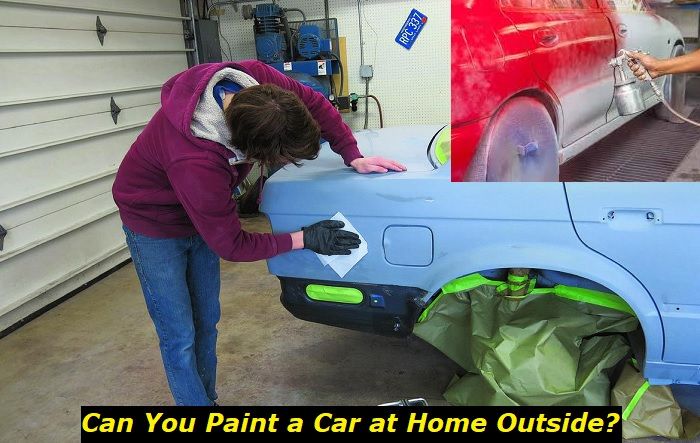When it comes to Land Rover vehicles, the Range Rover Evoque has been one of the hot offers that can drive people crazy after they test drive the car. This is a cheaper and smaller version of the Range Rover lineup and it seems like a good and solid choice for small families or people who want to stand out. But what's with its engines?
In the US, the Range Rover Evoque is offered with just one available engine - the 2.0L Ingenium powerplant codenamed P250, PT204, or also AJ200P if installed in Jaguar vehicles. I've also published an article about Ingenium engines overall (by my colleague) and also about the same family engine in the Discovery (by me).
.jpg)
Key facts and my opinion about the engine
- Production years: 2016-now
- Average lifespan of AJ20P: 150,000-170,000 miles
- Fuel supply type: direct injection
- Power range: 246 hp
- Fuel efficiency: average
- Engine block material: aluminum
- Engine reliability score: medium
- The most common problems: turbo pipes are bad, oil pump may malfunction, phasers are weak, timing chain issues.
What should you know about the Ingenium engine in the Evoque?
First of all, I should tell you that the word "Ingenium" gives Land Rover owners goosebumps. Especially when it comes to the gasoline series of these engines. Moreover, almost all vehicles in the lineup are now powered exactly with these engines having different power settings and somewhat different common issues depending on the mapping.
The Range Rover Evoque in the US comes with this engine only and no alternatives. Before you read this article further, you need to understand that I'm pretty skeptical about this technology, and will reveal all the problems that come with it. I will try to outline the bright sides, too, as there are some, of course.
Here are the key features of this engine:
- this is the 2-liter 4-cylinder turbocharged gasoline engine that has been in production since 2017;
- the engine is all-aluminum, it's fitted with direct injection, and can reach 246 horsepower and 269 lb-ft of torque;
- the timing system is powered by a chain, the engine has a hydraulic lifter which is good news, and it has phasers on both camshafts;
- the twin-scroll turbocharger is equipped with an intercooler, the turbo system looks pretty decent and relevant in this engine;
- the engine comes equipped with the 9-speed automatic transmission - this is a ZF 9HP transmission with various reviews and opinions about it;
- owners are promised to get about 20 MPG in the city traffic and up to 27 MPG on highways which is not that bad.
The engine has been used in the Discover, Range Rover, Defender, Discovery Sport, Range Rover Evoque, Range Rover Sport, and Velar. Also, the same engine with different codes and names has been used in several Jaguar models. Ingenium engines have very flexible mapping and this allows the manufacturer to install them in very different vehicles.
But you may feel this - 2 liters of displacement is not enough for the heavy bodies of these beautiful British cars. Downsizing of modern engines is a very bad trend that nearly all manufacturers adopt due to growing emission control requirements. This is something we just need to put up with and take all those problems that come with such technologies.
How many miles will the 2.0L Turbo last in your Evoque?
I suppose, the proper lifespan estimation for the AJ20P should be about 160,000 miles. It may last a little less in the Discovery and heavier vehicles. But the Evoque is lighter and it gives less loads to the engine and transmission. That's why it can last a bit longer. The bad news is that overhauling this engine and bringing it back to life once it fails is almost impossible.
The blocks are weak and some fatal issues usually kill them. Changing the block will mean that the repair will cost a little more than the new engine. Also, a lot of major problems that can happen almost at any mileage don't allow me to make a more positive prediction about the lifespan of the 2.0L Turbo engine in the Evoque.
It's worth noting that the transmission won't last even 160,000 miles. It will require serious repairs at about 120,000 miles or even earlier. This transmission is super sensitive to regular maintenance and it shouldn't be loaded with towing something or aggressive driving.
Overall, the durability of the powerplant in the new Evoque is questionable. But let's move on and see what leads to this issue.
Common problems with the Evoque's engine
Although this is a relatively new and fresh engine, it has been widely used in Land Rover and Jaguar vehicles, so we already know a lot about its problems. And if I devoted myself to listing all of them, I would spend several days writing this article. So, I'll focus on the most disappointing and even somewhat depressing problems that may happen with these engines.
Here they are:
1. Turbocharger piping is really bad
This problem has been there since year one of this engine and it hasn't been properly solved as of now. The piping in the turbocharger is just not ready to cope with the loads that this turbo offers. Land Rover needed to boost the small 4-cylinder engine to develop well over 100 hp from 1 liter of displacement, so the pipes may just crack.
Such issues will immediately affect the engine performance, light up all possible warning lights on the dash of your luxury car and make you hesitate your choice when you need to limp to the dealership.
2. Weird oil pump problems
Fortunately, this issue has now been solved but in 2017-2020, these engines had a mind-blowing issue. Land Rover installed the bolts of the crankshaft pulley that were too long. This led to the issues with the oil pump that was affected by these long bolts.
I should be honest with you - this is the first case in history that I learned about these weird and unbelievable problems. Long bolts that kill the oil pump in the engine that costs like my entire car. Very weird.
3. Intake phasers don't live long
Phasers are pretty hard to replace here and they cost like a wing from a Boeing plane. So, it's an extra pity that these phasers are not durable. A lot of cases have been registered with this 2.0L Turbo Ingenium engine with the phaser clutch being faulty. If this happens, your engine will work harshly and require expensive repairs.
If you notice unstable idling, vibrations, or power loss, you should check the phaser on the intake camshaft first.
4. Short life of timing chains
This engine has two timing chains in its timing system and they both may fail at about 100,000 miles. That's a pity and I really don't understand why one installs the chains instead of cheaper belts and still doesn't ensure they will last longer than those belts.
As a result, at about 100K miles, you will need to replace the chain kit that includes at least two chains, tensioner, and plastic guides. Also, think about replacing the water pump and have a look at the phasers that may also need some attention.
Well, if I had the Evoque that would approach the 100K-mile mark, I would trade it in without thinking much.
5. Minor but very expensive problems
You will be regularly attacked by minor issues that put your engine in limp mode or disable it completely. One more problem is that repairing virtually any issue in Land Rover engines will cost you a fortune. And this is not something you can ignore and keep driving as in some older cars.
How can you prolong the life of this powerplant?
Although the 2.0 Tubro in the Range Rover Evoque doesn't look really good, you may affect its lifespan.
Here's what you should do to avoid issues:
- use 0w20 original oil and OEM filters, change oil more often than requested by Land Rover;
- avoid aftermarket parts when repairing your engine, this is crucial;
- avoid abusive and aggressive driving, also don't tow anything with your Evoque;
- have the engine inspected thoroughly once every 30,000 miles;
- react to any bad noises and don't ignore minor problems - they can quickly escalate;
- have the valves cleaned professionally once every 50,000 miles;
- change transmission fluid more often than requested to avoid gearbox failure.
Final thoughts
I should tell you that the 2.0L turbocharged Ingenium engine in the Range Rover Evoque is not something you would want to own for a long time. But this engine seems to be really pleasant to drive when it's new. If I bought this car, I would obviously not consider it for a dozen years. This vehicle is good for 100,000 miles, after that, it starts frustrating you much more often.
Also, the price of repair is insanely high, so you just don't want to drive the Evoque until the engine drops. This will cost you many thousand dollars and many weeks of your life. So, be careful with modern Range Rover technologies and be aware of the proper time to change the vehicle for a new one.
About the authors
The CarAraC research team is composed of seasoned auto mechanics and automotive industry professionals, including individuals with advanced degrees and certifications in their field. Our team members boast prestigious credentials, reflecting their extensive knowledge and skills. These qualifications include: IMI: Institute of the Motor Industry, ASE-Certified Master Automobile Technicians; Coventry University, Graduate of MA in Automotive Journalism; Politecnico di Torino, Italy, MS Automotive Engineering; Ss. Cyril and Methodius University in Skopje, Mechanical University in Skopje; TOC Automotive College; DHA Suffa University, Department of Mechanical Engineering






Add comment